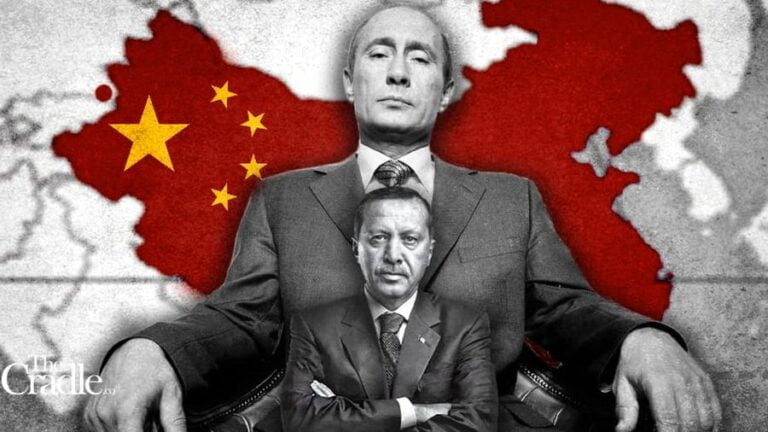Strategic Insight Into the Russian-Israeli-Syrian Triangle
OneWorld is publishing the full text of the interview that Andrew Korybko gave to Giorgio Cafiero on this topic, some excerpts of which the latter included in his recent article for Inside Arabia titled “Israel’s Working Relationship with Russia Inside Syria”.
1. What does Russia believe it can get for itself through cooperation with Israel in relation to Syria?
Russia and Israel agreed to a deconfliction mechanism in September 2015 shortly before the onset of the former’s intervention in Syria. The two sides hoped to mitigate the risk of midair incidents since Moscow bombs forces that it and Damascus regard as terrorists while Israel does the same, albeit the latter strikes Syria’s IRGC and Hezbollah allies that were invited into the country but which Tel Aviv regards as latent national security threats. Neither wants to clash with the other since that could dramatically escalate regional tensions. Moreover, Russia and Israel have excellent relations, particularly proven by the fact that Tel Aviv declined to sanction Moscow in solidarity with its Western allies all these years.
Russia officially condemns Israel’s strikes from time to time but hasn’t ever taken any action to stop them, whether directly or indirectly. The second-mentioned observation gained extra credence in recent years after Syria has thus far failed to use the S-300s that it belatedly received from Russia in late 2018 after the incident near Latakia that President Putin described as a tragic chain of circumstances. Even though Russia also officially acknowledges the legality and anti-terrorist purposes of the IRGC and Hezbollah’s presence in Syria, some argue that the Kremlin might discretely be hoping for Damascus to request their dignified but phased withdrawal (in this context, under the duress of Israeli airstrikes) as part of a compromise solution for ending the war.
2. To what extent is Russian-Israel cooperation vis-à-vis Syria problematic for Moscow’s relationship with Tehran?
Russia and Iran both fight against ISIS/ISIL/Daesh and other terrorist groups in Syria, but the first-mentioned mostly does so through the air and via the sharing of tactical intelligence to the Syrian Arab Army (SAA) while the second joins the SAA and their shared Hezbollah allies in on-the-ground battles. Moscow and Tehran therefore have the same interest in supporting Damascus, but they seemingly differ over their post-war vision for the country. The Kremlin believes that a series of mutual compromises is needed by all parties of the conflict while the Islamic Republic’s implied stance is that its Arab ally doesn’t necessarily have to concede anything to those whom it doesn’t regard as its political equals.
Even though Russia isn’t directly involved in Israel’s strikes, Iran and Hezbollah might not be happy that Moscow doesn’t ever tip them off when it’s informed of these attacks ahead of time per the reported protocol connected with their deconfliction mechanism. There might also be some questions about why Syria hasn’t yet used its Russian-supplied S-300s that were belatedly shipped to the country after the September 2018 incident for the reported purpose of deterring what was described at the time as further irresponsible Israeli behavior. Since then, Israel has continued to strike Syria, with Damascus only targeting its incoming missiles and not using the S-300s or other anti-air defense systems to strike the attacking jets themselves like many earlier expected.
3. Does Bashar al-Assad’s government believe that Russia can pressure Israel in ways which suit the interests of Damascus?
It’s unlikely that Syria seriously has those expectations, and in the off chance that it did, they’re unrealistic. The power dynamic actually seems to be the inverse: Israel believes that Russia can pressure Syria when it comes to requesting Iran and Hezbollah’s withdrawal. Moscow doesn’t want to take sides since it has great relations with both, albeit of a different nature and strategic impact with respect to advancing its interests, hence why it’s hitherto sat back and passively let everything unfold between them as it has.
Nevertheless, it’s precisely this passivity in spite of occasional condemnations of Israeli strikes that can be interpreted as tacitly advancing Tel Aviv’s interests since Moscow doesn’t do anything to stop its attacks against the IRGC and Hezbollah, not directly nor indirectly as was earlier explained. This leads some to wonder whether Russia discretely prefers for Israeli strikes to function as a form of pressure for getting Syria to request Iran and Hezbollah’s withdrawal as part of a larger regional compromise that the Kremlin might hope to broker.
4. What are Israel’s incentives to work with Russia? Is there any good reason for Israelis to believe that Russia will act against Iranian influence/power in Syria?
There’s a massive Russian diaspora living in Israel that has gradually come to command sizeable influence in society and some parts of the permanent bureaucracy, including the formulation of foreign policy. President Putin is also very well respected in Israel for his resolute opposition to anti-Semitism, fascism, and historical revisionism connected to World War II. Furthermore, as an influential Great Power that’s returned to West Asia with its Syrian intervention and is nowadays considered the kingmaker for resolving that country’s crisis, Israel has every reason to pragmatically expand its relations with Russia, especially since this could give it some leverage to better balance its historical relationship with the US.
Nevertheless, Israelis shouldn’t have any unrealistic expectations about Russia directly acting against Iranian influence in Syria. Doing so would risk undermining Moscow’s anti-terrorist campaign there as well as its bilateral relations with the Islamic Republic which are important for maintaining stability in the South Caucasus, Caspian Sea, and Afghanistan. The most that Russia is seemingly willing to do is “passively facilitate” regular Israeli strikes against the IRGC and Hezbollah by not interfering with them per the reported conditions of the September 2015 deconfliction agreement and speculatively not authorizing Syria to use the S-300s and other anti-air defense systems for targeting attacking Israeli jets (which could escalate tensions), which is still a lot.
Some excerpts from this interview were included in Giorgio Cafiero’s recent article for Inside Arabia titled “Israel’s Working Relationship with Russia Inside Syria”.







